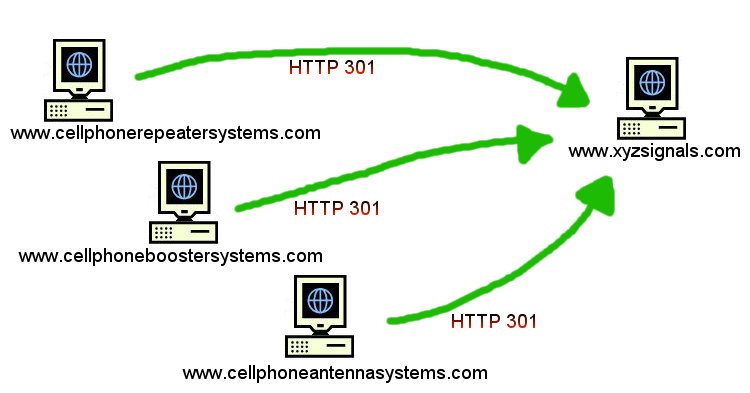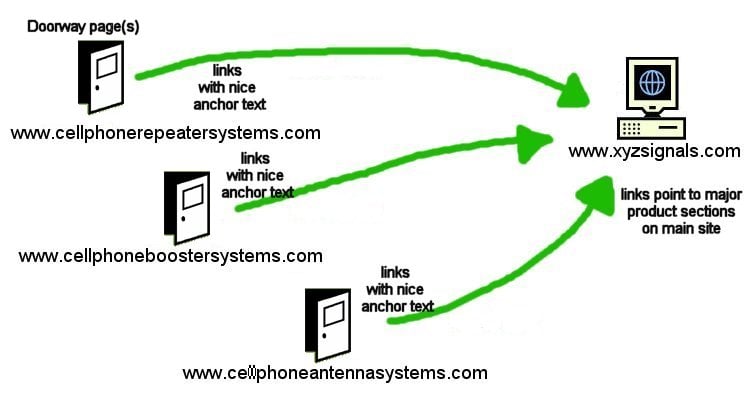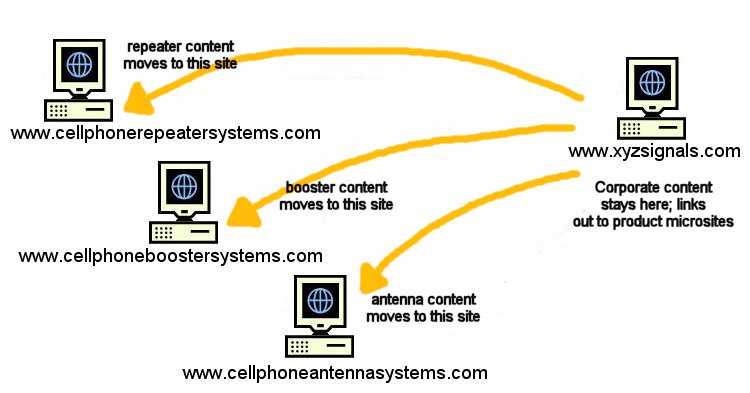It's a Feeding Frenzy for Keyword-Rich Domains
The author's views are entirely their own (excluding the unlikely event of hypnosis) and may not always reflect the views of Moz.
It's a well-known fact in the SEO world that Google shows enormous favoritism in its rankings to domain names that contain one or more of the keywords being searched for. If your domain name is a close match to the search keywords all glued together, it's as easy as fishing with dynamite to get on page 1 of the SERPs for that search phrase. While some (like me) might argue (like, against Rand) that it's a flaw in the algorithm, it's not a bug--Google deliberately favors this kind of match. If the search is a company name, well the reasoning why [that phrase] .com should rank #1 is obvious...and for everything else, well...it's pretty reasonable for Google to presume that a site named, for example, www.lightbulbs.com is probably pretty much about light bulbs. Whether it's the BEST site for light bulbs is of course another story.
The net result of the world realizing that Google works this way is pretty predictable: mass buying of keyword-rich domains, and trying to turn those into top rankings and monster-sized site traffic. We're seeing three tactics here:
- 301 redirection of keyword-rich domains
- content-rich doorway pages on those domains
- moving existing sites onto those domains
Before we dive into each of these in detail, let me throw out an example to help make all the details make sense. Apologies in advance to whoever actually owns these domains--y'all can just relax and think of this as just a free citation to help your local search :-)
Example: let's say your company is "xyzsignals.com", you sell cell phone repeaters, boosters, antennas, etc.
- page 1 of the SERPs for "cell phone repeaters" is dominated by domains with those words in the domain name
- being the devious and knowledgeable SEO that you are, you buy these domains: www.cellphonerepeatersystems.com, www.cellphoneboostersystems.com, www.cellphoneantennasystems.com
FYI, it's not necessary to add hyphens between your keywords; search for "web hosting" and see how well the non-hyphen versions rank. Also, hyphenated domains may be a red flag as many spammy domains have been built this way over the past few years.
OK, first up to bat: the quickie: buying the domains and 301'ing them to your site.

You buy these existing domains--perhaps they already have a bunch of juicy links to them. You HTTP 301 redirect everything from those sites to your main site, www.xyzsignals.com. Cool, right? Free link juice, immediately!
Not so fast...Google's ahead of you on this, and is looking for people who do this purely for SEO benefit. Matt Cutts is pretty clear on this in this video.
If you buy a domain, and immediately change the owning organization name, address, technical and admin contacts, etc., you can pretty much count on getting busted on this. At best, the sandbox....at worst, penalties.
If you're clever about it (I can't really tell you what to do, it's black-hat, but it's bloody obvious!) and avoid getting spotted as a domain buyer, keep in mind also that you'll likely have to move the domain to some new servers, which may in itself be a signal (when combined with registrar info changes) that the domain is no longer owned by the same organization, and perhaps past links shouldn't be counted as votes and hence flow PR.
Let's say you're smarter than the average bear, and get past that....what can you expect in terms of SEO results? Well, you're not going to see the keyword-rich domains in the SERPs, you'll see your own site. And you might think about the conversion effect of showing an URL with the phrase that matches the search phrase, versus showing your company name. My guess (and experience) would lead me to say that www.cellphoneantennasystems.com will get more attention from the searcher (hence clicks) than xyzsystems.com, presuming of course they searched for "cell phone antennas".
As well, there's some thought in the SEO community that the juice passed via 301s may decay over time anyway.
Lastly, let's say you're going all out and have bought 20-odd sites, each matching a target search phrase. Will Google spot a pattern if you redirect 20+ sites all to your 1 principal domain? If not today, probably soon...
On to Door Number Two: Content-Rich Doorway Pages

For each of the keyword-rich domains you've bought, you build light content, with a link/call to action that sends users off to the main site. The idea:
- the doorway domains will rank well
- users will click on them in the SERPs as the URL and title both will closely match their query phrase
- users will click the link on the doorway page to get to the main site
Most likely you will make it visually obvious to the user that the two domains are the same company (despite different URLs); the more black-hat approach is to make the doorway page appear to be a "review" site that recommends the main site, but of course, I wouldn't suggest such nonsense here.
The concern about buying the domain and changing the registrar info (and hosting ) all at once applies here as well. Tread softly....and slowly.
Once out of the sandbox (if you fall in at all), the doorway domains will rank really well for the key phrase, with proper on-page SEO and very light link-building needed.
So, is this black-hat? ask yourself: is there any reason to do this (for the human user) OTHER than search ranking? Does it honestly add value? Will it be detected automatically? Probably not....but...
If you're very successful at this, your competitors are likely to notice; you should BET on one of them submitting a manual spam report to Google; think about how you're going to explain to a Google engineer that you are doing this for some reason other than search rankings trickery.
A Beige-Hat Suggestion: if you go this direction, choose your main products and build a real site for each that offers Wikipedia-like information on each class of product, so that what you have is a generally useful resource for someone looking to buy a product like what you're selling; then, be upfront and put a "sponsored by" link to the section of your site that focuses on that product class on each page of the site; as well, a link on each page in the text to that same section.
You might create a mini site for each of those products, and talk about the pros and cons of the various types of each. Let's say on one page you're talking about the roof-mounted directional antennas - you could say on that page "At XYZ Signals, our most popular roof-mounted directional antennas are the ACME 3 antennas" and link both "roof-mounted directional antennas" and "ACME 3 antennas" to your main page for ACME 3 antennas.
Last, but not least: buying a keyword-rich domain and moving your entire site

This move isn't for the light-of-heart, even though it's pretty white-hat. You're still going to have issues with the sandbox, and to avoid this, need to execute this tactic over several months. Danny wrote a great post with all the details on how to move a domain a little while ago.
Consider putting up some light content on the new sites and watch the SERPs for a month or so to be sure the new sites are not sandboxed. Then, move all of the pages from your original site over, and 301 each page to the exact corresponding page on the new site EXCEPT the home page.
Retain your original domain and use it for a "corporate info" site; link to it from the new domain and vice-versa.
Finally, use the backlinks analysis from Open Site Explorer to find the important sites that link to the old site, and ask them to update their links to point to the new sites.




Comments
Please keep your comments TAGFEE by following the community etiquette
Comments are closed. Got a burning question? Head to our Q&A section to start a new conversation.